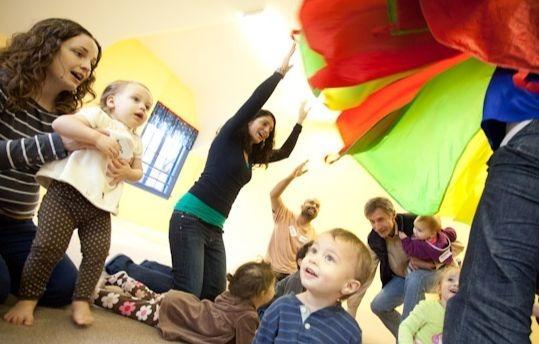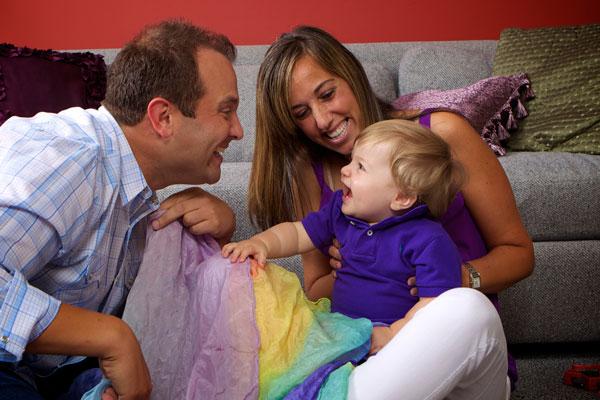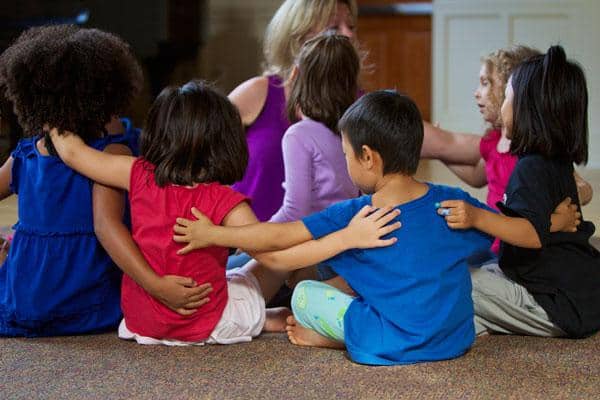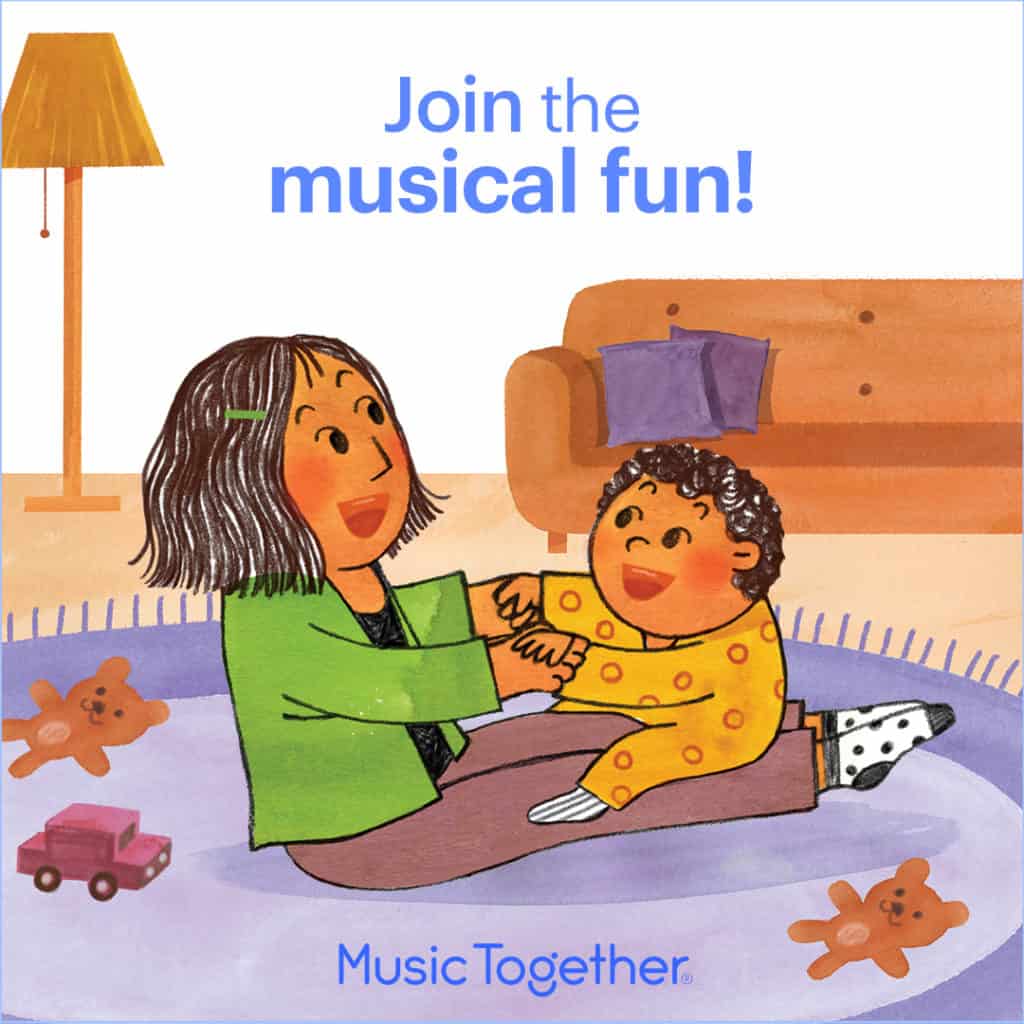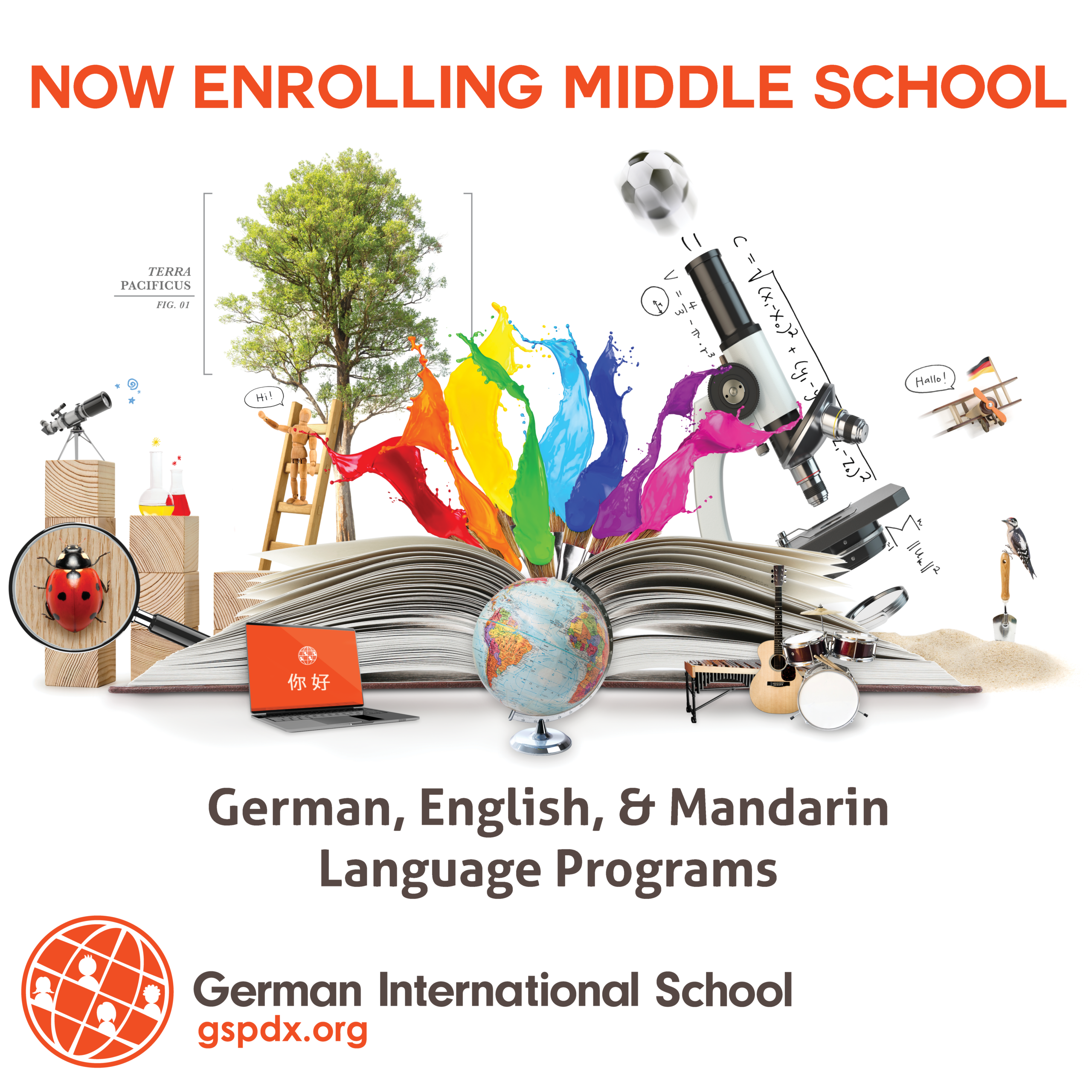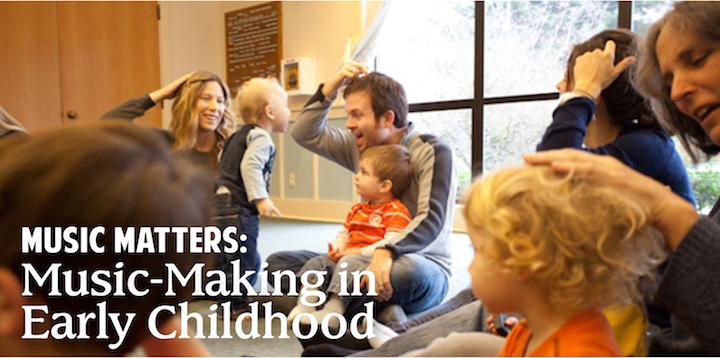
Early childhood is a remarkable time in human development in which children’s brains, bodies, and abilities are growing more rapidly than at any other time. It is also a time when our littlest humans are forming their most significant life-long relationships; they are learning the sense of love and belonging that comes with being in family and community, and how to connect and communicate with their world. More and more, research is showing that very young brains are forming the neural pathways that will serve them for a lifetime of thought, learning, communication, and belonging. Research is also increasingly showing what humans have understood at some level through the ages—that music is a powerful force in nurturing whole child development.
As Bonnie Singer, co-director of Music Together of Portland, puts it, “Our propensity for making music is universal, and it’s one of the uniquely human ways that we express ourselves, throughout every stage of our lives. Making music uses every part of who we are–our bodies, memory, emotions, imagination, breath, voice, heart and soul. What other learned life skill can make such a claim?”
Basic research, early childhood programs, and family experiences all point to the importance of informal musical activities in the lives of children and families. Music is fundamentally about being, playing, and growing together. As you make music with your child, you support their musical growth while also nurturing their social, emotional, cognitive, and physical development. It is never too early to start singing, exploring sounds, dancing, and playing with your little one: in their first 24 hours, babies are already listening and responding!
Music Together of Portland’s Spring session runs April 8 – June 15. Registration opens March 18th. Try a free class, and discover the power of family music-making during your child’s early years!
Music-Making Benefits the Whole Child
In a recent study entitled “Why Making Music Matters,” Dr. Dennie Palmer Wolff outlines some of the ways that music can play a role in the everyday interactions that support and shape young children.
- Building brains and bodies Making music is an intense, multi-sensory, and physically involving experience for young children. The simple games, songs, and back-and-forth play that often accompany early childhood music-making stimulate brain growth, build important connections across many regions of the brain, and support the development of body coordination.
- Becoming close: forming relationships Young children form some of the most important relationships of their lives as babies and toddlers. Music, such as singing a lullaby to soothe a child through the transition from wakefulness to sleep, supports the intimate exchanges required for a child to develop the sense of security that allows them to feel loved and protected as they begin to explore their new world.
- Sharing and managing feelings The capacity to manage and regulate emotion is a major part of childhood development. Research shows that participation in active music-making offers young children opportunities to explore and understand emotion in a way that leads to increased empathy and self-regulation.
- Communications and imagining Humans are born sounders, and we are wired to be sensitive to sound patterns. Babbling and sound play help develop the neural pathways necessary for listening and speaking. Songs, music, and the talk that surround them enrich the quantity and quality of the language a child hears and encourage the babbling and acute sound processing skills that support children in learning to use words to express their thoughts, feelings, and imagination.
- Being with others Music provides a structure and predictability that can help children learn the rules and routines for being together and forming a cohesive group. Music can facilitate peer interaction and acceptance among children and the adults who care for them.
- Belonging to a community Music creates connection–between children, families, and neighbors and across cultures and different backgrounds–that has the power to create a more inclusive and connected world.
- Making music / finding joy Smiling, laughter, and positive emotions can play a powerful role in connecting to life and community. Music is a remarkable carrier for that kind of shared joy.
- Summer Camps with Space - April 16, 2024
- Portland Half-Day Summer Camps - April 16, 2024
- Summer Camps with Space - April 15, 2024



